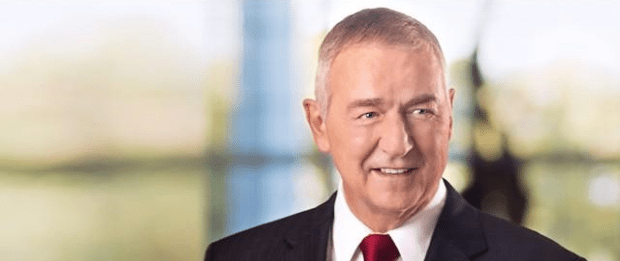DENVER – SAS Institute‘s Global Forum 2018 is coming to a close, and between a new fraud division, artificial intelligence and machine learning updates, and a focus on the Internet of Things, we’re putting everything that the analytics company announced in one place.
You can scroll through a brief look at each of the announcements SAS made this week below, and stay tuned to IT World Canada for more in-depth looks from Global Forum 2018.
SAS announces new fraud division
SAS is no stranger to fraud, and after many years of experience in the space, the company is creating a dedicated fraud division. The new division will be aligning 400 employees in 25 countries across numerous teams like sales, R&D, marketing, etc. This will allow SAS to have a much more organized approach with its fraud solutions.
As for why now, Stu Bradley, VP of Fraud and Security Intelligence, told the press that it made sense considering SAS’ experience in the area.
“We are building upon something that is already really successful. [Fraud] has been one of our fastest growing portfolios in the last 10 years,” he said.
SAS is going all in on the Internet of Things
Since Global Forum 2017, SAS has made significant moves in the IoT space. This included launching an IoT division in late 2017 that works similar to how the fraud division is designed.
SAS Chief Operating Officer and Chief Technology Officer Oliver Schabenberger opened up the Monday technology session with talking about IoT and edge analytics on edge devices saying, “We can’t afford to send every speck of data to the cloud.”
Throughout the conference, SAS reiterated its investment into IoT. While no new solutions around IoT were introduced, the company announced new IoT partnerships with companies such as Lockheed Martin, Octo Telematics, and Western Digital. Jason Mann, VP of IoT, also added that the IoT division will continue to focus on industries such as manufacturing, healthcare, government, and insurance.
SAS plans to put its AI and machine learning capabilities in every solution
During his keynote address, Schabenberger iterated that “going forward, you should expect AI and machine learning in everything we do.” That will happen this June, with new SAS Viya updates that will be bringing the companies AI and automation capabilities across the SAS platform.
Other updates to Viya include more transparency, better data governance, an improved user experience focused on creating a more consistent experience, and capabilities that will improve the SAS platform’s openness and interoperability with other systems.
New survey reveals that U.S. consumers trust AI the most in healthcare
It looks like consumers are more likely to trust AI if it is used in a healthcare setting, with 47 per cent of those surveyed saying that they would be comfortable with going into surgery with AI assisting doctors in the operating room.
The survey focused on healthcare, banking, and retail, with retail being the industry where consumers are least comfortable with the idea of AI.
“Consumers feel positively about AI when they believe it’s being used for good,” said David Tareen, marketing manager for AI. “In this survey, healthcare scenarios were well received, indicating that respondents were comfortable with a tangible benefit to the technology. Overall, a lack of understanding about what AI is and can do is a significant factor for those who fear it.”
To that point, only 44 per cent of respondents said they could explain the concept of AI to a friend or colleague, and the top reason cited for feeling uncomfortable was a lack of human interaction. Data privacy is another key concern.
SAS teams up with the Global GoalsCast as latest Data for Good effort
While technically not announced at Global Forum, SAS is teaming up the the Global GoalsCast podcast by providing data visualizations with SAS Viya. The Global Goalscast series aims to inspire action by sharing stories of people tackling urgent global issues, including migration, clean water, gender equality, climate change, and the refugee crisis. You can see the visuals created through this partnership by following the podcast on social media.
The podcast focuses on the United Nations’ 17 Sustainable Development Goals, known as the Global Goals, that were signed by 193 countries in 2015 with specific targets to achieve a more prosperous, peaceful, and sustainable world by the year 2030.
The podcast is hosted by Claudia Romo Edelman and Edie Lush, and is available on podcast services.





